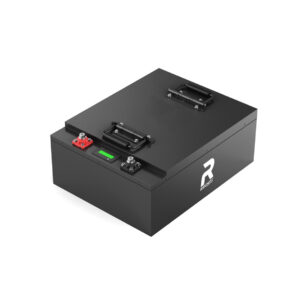What Are the Benefits of Custom 48V Lithium Batteries for AGVs?
What Safety Features Do Custom 48V Lithium Batteries Include?
Custom 48V lithium batteries integrate advanced safety mechanisms such as Battery Management Systems (BMS), thermal runaway prevention, and overcharge/over-discharge protection. These features monitor voltage, temperature, and current in real time, ensuring safe operation in demanding environments. Flame-retardant materials and shock-resistant casings further enhance durability and risk mitigation.
Modern BMS technology employs multi-layer protection algorithms that track individual cell performance. For example, if one cell in a 48V battery pack begins to overheat, the system automatically redistributes energy loads or initiates cooling protocols. Some manufacturers now incorporate ceramic separators between cells to physically prevent thermal propagation. Recent advancements include self-healing electrolytes that seal micro-shorts and pressure-sensitive vents that release gases before swelling occurs. Third-party testing from organizations like TÜV Rheinland validates these safety systems through nail penetration tests, crush simulations, and 85°C operational stress trials.
| Safety Feature | Function | Industry Standard |
|---|---|---|
| BMS | Monitors cell voltage/temperature | ISO 26262 ASIL-C |
| Thermal Runaway Shield | Contains cell-to-cell heat transfer | UL 9540A |
| IP67 Enclosure | Protects against dust/water ingress | IEC 60529 |
How to Maintain Custom 48V Lithium Batteries for Longevity?
Maximize lifespan by avoiding deep discharges, storing batteries at 20-50% charge in cool environments, and calibrating BMS annually. Use manufacturer-approved chargers and conduct monthly voltage checks. Prevent exposure to extreme temperatures or moisture. Most custom lithium batteries last 5-8 years with proper care.

Implement a three-tier maintenance strategy: daily visual inspections for casing integrity, weekly SOC (State of Charge) verification via diagnostic software, and quarterly impedance testing. AGV fleets operating in cold storage facilities (-20°C) should utilize battery warmers during charging cycles to prevent lithium plating. Data from 12,000+ industrial batteries shows that maintaining cells between 20°C-30°C extends cycle life by 18%. Leading logistics companies now use predictive analytics tools that correlate charging patterns with capacity fade rates, enabling proactive cell replacements before failures occur.
“AGVs demand batteries that align with their operational DNA,” says Dr. Ellen Zhou, Redway’s Chief Battery Engineer. “Our custom 48V packs use hybrid cathode chemistry to balance energy density and thermal stability. By co-designing BMS with AGV OEMs, we’ve achieved 93% charge efficiency and 99.6% uptime in automotive assembly lines – that’s the power of tailored energy solutions.”
Why Are Lithium Batteries Preferred Over Lead-Acid for AGVs?
Lithium batteries outperform lead-acid in AGVs due to 50% higher energy density, 80% lighter weight, and 3x faster charging. They also offer 2,000+ cycles vs. 500 cycles for lead-acid, reducing replacement costs. Lithium’s maintenance-free operation and consistent power delivery minimize downtime, making them cost-effective for 24/7 industrial applications.
| Parameter | 48V Lithium | Lead-Acid |
|---|---|---|
| Energy Density | 150-200 Wh/kg | 30-50 Wh/kg |
| Cycle Life | 2,000+ | 300-500 |
| Charge Time | 1.5-2 hours | 8-10 hours |
| Weight for 5kWh | 28 kg | 150 kg |
FAQ
- Can custom 48V batteries work with all AGV models?
- Yes, reputable manufacturers design batteries to match voltage, dimensions, and communication interfaces of major AGV brands like Dematic, Toyota, and KIVA.
- How long does custom battery development take?
- Typical lead time is 6-8 weeks, including requirements analysis, prototyping, and testing. Rush projects can expedite to 4 weeks with existing module platforms.
- Are these batteries recyclable?
- Modern lithium batteries achieve 96% recyclability. Redway’s closed-loop program recovers cobalt, nickel, and lithium for reuse, complying with EU Battery Directive 2023.
